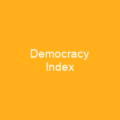Democracy: The Voice of the People
The Essence of Democracy
Imagine a world where every voice is heard, and every vote counts. That’s the essence of democracy—a system where power resides in the hands of the people. But what exactly does this mean? Is it just about competitive elections or something more profound?
Ancient Roots
The term ‘democracy’ originated in ancient Greece, where it meant “rule of the people.” In Athens during classical antiquity, citizens directly participated in public business. This direct democracy was a marvel of its time but had limitations, as only landowners could be citizens.
Forms of Democracy
Democracy comes in various forms: direct and representative. Direct democracy allows citizens to make decisions themselves, while representative democracy involves elected officials making decisions on their behalf. Both have their strengths and weaknesses—direct democracy can be cumbersome, but representative democracy risks the tyranny of the majority.
Theories of Democracy
Political theorists like Aristotle, Montesquieu, and modern thinkers propose different conceptions of democracy: aggregative, deliberative, and radical. Aggregative democracy focuses on voting; deliberative democracy emphasizes authentic dialogue among citizens; and radical democracy challenges oppressive power relations.
The Evolution of Democracy
From ancient Athens to the present day, democracy has evolved significantly. The Magna Carta in 1215 laid the groundwork for parliamentary institutions, while the American and French Revolutions further solidified democratic principles. Over time, voting rights expanded, with universal suffrage becoming a reality in many countries.
Global Spread
The Universal Declaration of Human Rights mandated democracy in 1948, stating that the will of the people should be expressed through periodic elections by universal and equal suffrage. By 1960, most country-states were nominally democracies, although many experienced sham elections.
Modern Challenges
Despite its widespread adoption, democracy faces numerous challenges today. Economic inequality, social discontent, and populist movements threaten the stability of democratic institutions. The media’s role in shaping public opinion is crucial but often marred by commercial interests and misinformation.
The Internet and Social Media
The internet and social media have transformed political communication, allowing citizens to express opinions freely. However, these platforms also spread false information rapidly, undermining the democratic process. Reliable sources of information are essential for a healthy democracy.
Conclusion
Democracy is not just about elections; it’s about ensuring that every voice matters and that power is held accountable to the people. As we navigate the complexities of modern society, preserving and strengthening our democratic institutions remains paramount. The journey towards true democracy continues, but with each step forward, we move closer to a more equitable and just world.

You want to know more about Democracy?
This page is based on the article Democracy published in Wikipedia (retrieved on January 15, 2025) and was automatically summarized using artificial intelligence.






